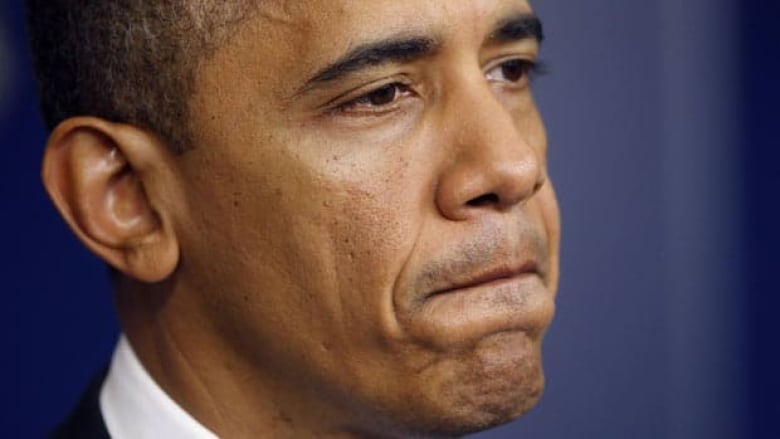Syria attack a tough sell for Obama
Congressional leaders demand justification for U.S. military involvement

Congressional Republicans and Democrats pressed U.S. President Barack Obama to explain why the U.S. military should attack Syria and involve Americans in a deadly civil conflict that has roiled the Mideast.
"What is the intended effect of the potential military strikes?" House Speaker John Boehner wrote the president on Wednesday as the drumbeat of war grew louder.

The administration signaled Wednesday that it would act against the Syrian government even without the backing of allies or the United Nations in response to the alleged chemical weapons attack outside the Syrian capital of Damascus on Aug. 21.
Some lawmakers insisted that Obama, despite his standing as commander in chief, cannot unilaterally order military action against Syria without congressional authorization. The president said in a PBS interview Wednesday that he had not made a decision about how the United States would respond.
In his letter, Boehner underscored that he has been supportive of administration policy to date as Obama has called for Syrian President Bashar al-Assad to resign and insisted that the use of deadly chemical weapons would be a gross violation of international norms.
Boehner wrote that in light of the administration's contention that the Syrian government had used chemical weapons against its people, Obama should provide "a clear, unambiguous explanation of how military action — which is a means, not a policy — will secure U.S. objectives."
'Simply lashing out with military force under the banner of `doing something' will not secure our interests in Syria.' — Democratic Rep. Adam Smith
The administration was planning a teleconference briefing Thursday on Syria for leaders of the House and Senate and national security committees, U.S. officials and congressional aides said. Rep. Mike Rogers, R-Mich., chairman of the House intelligence committee, complained in a letter to Obama on Tuesday that informal briefings and conversations with administration officials have focused on the general situation in Syria and included no discussions of steps being considered or a comprehensive strategy.
Boehner asked Obama to "personally make the case to the American people and Congress for how potential military action will secure American national security interests, preserve American credibility, deter the future use of chemical weapons, and, critically, be a part of our broader policy and strategy."
The speaker also pressed the president to provide a legal justification for any U.S. military action. There was no immediate reaction from the White House to Boehner's request.
In the House, 98 Republicans and 18 Democrats have signed a letter to Obama demanding that he seek congressional authorization for any military action against Syria. The letter argues that intervention without a direct threat to the United States and without Congress's approval would be unconstitutional.
Democrat urges caution
Rep. Adam Smith, the top Democrat on the House armed services committee, cautioned that an attack might be ineffective and draw the United States into the Syrian civil war, now in its third year.
"Simply lashing out with military force under the banner of `doing something' will not secure our interests in Syria," Smith said in a statement.
Jim Inhofe, the top Republican on the Senate armed services committee, said he informed the administration that he could not support any military strike against Syria unless Obama presents a detailed strategy to Congress and provides a defense budget to support any action.
An increasing number of lawmakers have asked what would be the end result of U.S. military intervention against a Mideast country where the Assad government and rebel forces have struggled for more than two years, with an estimated 100,000 killed and millions displaced.
"The war in Syria has no clear national security connection to the United States and victory by either side will not necessarily bring into power people friendly to the United States," Senator Rand Paul said.